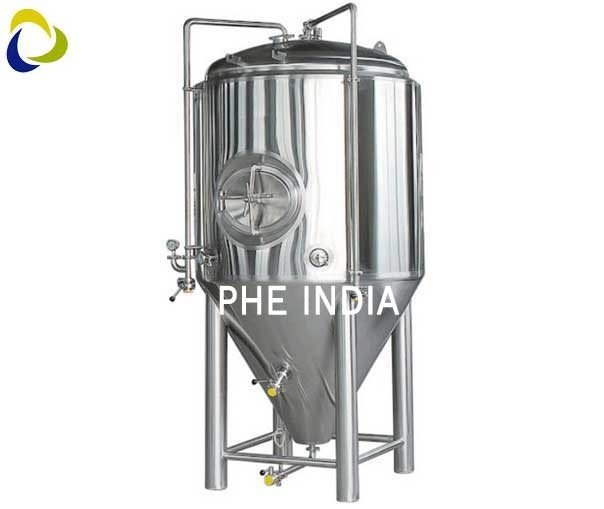views
The Republic of Lithuania implements a business-friendly taxation policy, and the taxation system is adapted to the legislation of the European Union. Since 1990, the Lithuania's taxation system has drastically changed to support foreign investments and labour market development.
Taxes and other payments are collected to the budget based on the order by the Supreme Council; however, regional and city councils act separately in matters of tax collection. In Lithuania, basic principles of tax payment and their regulation is governed by the Law on Tax Administration stipulating the rights and obligations of a tax administrator and tax payer, as well as the tax calculation procedure and chargeable amounts.
There are 7 main types of taxes in Lithuania:
- corporate income tax
- personal income tax
- real estate tax
- land tax
- inheritance and gift tax
- value added tax
- excise duty
- lottery and gaming tax
The state collects also social insurance contributions, taxes on state natural resources, petroleum and natural gas resources tax, tax on environmental pollution, consular fees, state fees.
Corporate income tax
Corporate income tax payers are enterprises pursuing commercial activities, and this tax is also paid by non-profit organisations obtaining profit from commercial activities.
The general corporate tax rate is 15%, although companies with fewer than 10 workers and less than EUR 300,000 in gross annual revenue may opt for a smaller corporate tax rate of 5%. Additionally, such small companies benefit from
NB! Corporate tax rate in 2009 was 20%, nevertheless in 2010 tax rate was reduced to 15% and still is at the same level.
For 2010 year the basic contributions amount to 40.7 % of the total income before tax, thus covering all risks (except for accidents at work and occupational diseases), out of which 31.7 % is paid by an employer, but the remaining 9 % – by an employee.
Agricultural and farming enterprises, non-profit organisations, small enterprises, enterprises with foreign investment and enterprises employing the disabled person can apply for tax relief. Lithuania actually ensures the most preferable conditions for business growth for micro-enterprises comparing to other Baltic States.
Personal income tax
Progressive reduction of the personal income tax was commenced in 2006. Today every natural person is obliged to pay the personal income tax in the amount of 15 % if this person is employed or self-employed. If the person can be considered a permanent resident, the income tax is calculated from the person's income received in Lithuania and abroad. Foreign residents must pay tax only from that part of income which is received in Lithuania. To consider someone a resident of Lithuania, this person has to live in Lithuania for at least 183 subsequent days within a 12-month period.
Persons receiving a salary lower than the minimum non-taxable income are practically exempt from the personal income tax. The minimum non-taxable income is calculated as STANDARD NON-TAXABLE INCOME AMOUNT - 0.15 * (WAGE - MINIMUM WAGE). Currently, the standard non-taxable income amount is EUR 300, and the minimum wage is EUR 555. Below you will find an example for calculating non-taxable income sums for a wage of EUR 555 and a wage of EUR 1000.
- EUR 555 wage
- EUR 555 wage - EUR 555 minimum wage = EUR 0
- 0.15 * EUR 0 = EUR 0
- EUR 300 standard non-taxable amount - EUR 0 = EUR 300 of non-taxable income
- EUR 1000 wage
- EUR 1000 wage - EUR 555 minimum wage = EUR 445
- 0.15 * EUR 445 = EUR 66.75
- EUR 300 standard non-taxable amount - EUR 66.75 = EUR 233.25 of non-taxable income
Also disabled persons and single mothers (fathers) are exempt from personal income tax, and the tax is not deducted from pensions and scholarships.
Real estate tax
The real estate tax in Lithuania ranges from 0.3% to 3%. Private real estate is generally taxed at 1% on the property value that exceeds EUR 220,000. This threshold is increased to EUR 286,000 for families with three or more underaged (younger than 18 years old) children or a child with disabilities that require special care. It also must be noted that in each particular case the actual real estate tax rate is regulated by the local municipality (it should still, however, be within the range mentioned before).
Land tax
In Lithuania, the land tax includes only tax payments on land, and the provisions on calculation and payment of this tax are laid down by city and district councils. The object upon which the land tax is imposed is privately owned land, and its annual rate ranges from 0.01% to 4% of the land value (in case of a forest, the tax rate does not include the value of trees).
New land owners must pay the tax for the whole year if the land is purchased in the first half of the year. However, if the land is purchased in the second half of the year, the tax is to be paid starting from the next year. In case if the land is sold in the first half of the year, the tax is not to be paid for the respective year, but if it has occurred in the second half of the year, the tax must be paid for the whole year.
Excise duty
The excise duty which is envisaged to adjust the consumption of goods to be sold in the country is levied on the following products:
- ethyl alcohol, nondenatured spirit and alcoholic beverages including beer;
- smoking tobacco and tobacco products;
- coffee, chocolate and food containing cocoa;
- jewellery, gold and silver except for imitation jewellery and coins;
- motor fuel, except for aviation fuel, and diesel fuel;
- luxury cars;
- electricity;
- publications of erotic or violent nature.
The excise duty is not imposed on alcoholic beverages and their raw materials imported by state enterprises licensed to produce alcoholic beverages and on exported goods.
Inheritance tax
The amount of tax is calculated based on the value of the taxable inherited property by applying the following tax rates:
- if the value of the taxable inherited property does not exceed EUR 150,000 - 5 %;
- if the value of the taxable inherited property exceeds EUR 150,000 - 10 %.
The tax is not levied on a property inherited by a surviving spouse following the death of the other spouse, a property inherited by children (also adopted children), parents (also adoptive parents), a guardian (custodian), persons under guardianship (children taken into care), grandparents, grandchildren, siblings, and on an inherited property the taxable value of which does not exceed EUR 3,000.
Value added tax (VAT)
The VAT is not calculated for and paid into budget by persons whose revenue from sales of goods and provision of services (except for long-term investments) that are publicly important, such as food, postal services, etc.
The VAT rate is 21 % in Lithuania.
VAT taxpayer registration
Foreign entities must register as VAT payers in Lithuania if:
- they commence the VAT taxable economic activity in Lithuania,
- they acquire goods in Lithuania from taxable entities based in other EU Member States and the value of goods purchased during the calendar year exceeds EUR 14,000,
- they acquire services from taxable entities based in foreign countries,
- they are engaged in distance sales and the value of supplied goods, transported to Lithuania during the calendar year, exceeds EUR 45,000.
In Lithuania, the coordination of social insurance schemes operates at a relatively high level. Social insurance contributions are paid by both employers and employees. The basic contributions amount to 33.7 % of the total income before tax, thus covering all risks (except for accidents at work and occupational diseases), out of which 30.7 % is paid by an employer, but the remaining 3 % – by an employee. The state makes contributions on behalf of specific groups of persons (partial participation in financing), for example, children.
In compliance with the Lithuanian legislation there are three categories of social insurance contributions for accidents at work and occupational diseases and social insurance contribution rates for accidents at work and occupational diseases payable by the contributors assigned to these categories:
- category I: the employer contributes at the rate of 1 %;
- category II: the employer contributes at the rate of 0.44 %;
- category III: the employer contributes at the rate of 0.28 %.
In order to be entitled to benefits under the social insurance scheme, the person must be employed or self-employed and pay contributions. The State Social Insurance Fund Board and its local offices include these persons on the social insurance registry. All branches of the Lithuanian social insurance system are compulsory for employees, but only some of them (pension and health care) are for self-employed persons. Self-employed persons can join other branches voluntarily.












Comments
0 comment